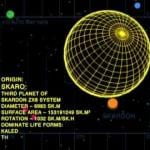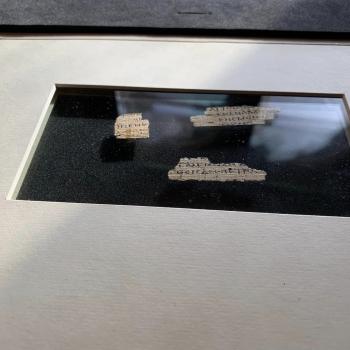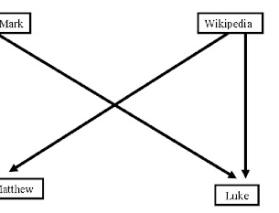After I posted a call for papers for a conference about the moon, John MacDonald left a comment drawing attention to a lunar connection with the New Testament: the Greek word used in Matthew 17:15: “σεληνιάζεται: epileptic/luna-tic; or, moonstruck.” John further wrote:
I did a little checking, and Dr. Larry Perkins cites J.M.Ross, “Epileptic or Moonstruck?” The Bible Translator 29 (1978), 126-128, saying Matthew’s use of the word seems to be the first literary occurrence in antiquity, and that it occurs only later in a treatise by the astrologer Vettius Valens who wrote in the second century A.D.
This isn’t really helpful, though, since the term might have been common in oral culture and simply not written down until Matthew. Also, this isn’t really helpful in discerning how the ancients understood the effect of the moon on mental stability when combined with demon possession.
He also shared a link to and quote from an article in Scientific American about the results of research into the possibility of some lunar connection to epilepsy and other conditions. The conclusion is that there is no evidence of a connection or correlation. It seems to be a very old and very persistent urban legend. You can find the research results online in open access form.
But returning to the ancient understanding, I wonder how much has been done on this topic by scholars of the New Testament and/or of ancient Greek science/medicine/magic. The article by Ross is one that I don’t have access to through my library. R. T. France’s commentary on The Gospel of Matthew has a footnote indicating that the translation of σεληνιάζεται in terms of epilepsy is problematic. And what is the connection between the moon and demon possession in the mind of the author using the term? Was “moonstruck” taken literally or was it simply a metaphor by this stage? There are lots of questions raised by this text that one is unlikely to notice reading it in English translation, and perhaps not even reading it in Greek unless one really looks into the root and history of the use of the term.
It seems to me that we may have a neglected research area here, and those are always worth highlighting, perhaps especially when one is unlikely to pursue it oneself anytime soon. There may be grad students or other academics who are looking for a neglected question that they can sink their teeth into (if you’ll excuse the fact that that metaphor probably conjures up werewolf imagery when connected with the moon in this post).
There is some wild stuff on the internet about this topic, reflecting simplistic approaches to the Bible, medicine, science, and mental health that are downright dangerous in this instance.
Also moon-related, Bill Benzon wrote a piece recently about First Man and the sense of the sacred. Ray Bradbury’s poem Christus Apollo is also worth mentioning here, as is Jerry Goldsmith’s musical setting of that text.
For those most interested in the ancient texts, I did find one other interesting-looking source, a paper by G. J. Reinink with the title “Der Dämon ‘Sohn des Daches’ in der syrischen exegetischen Literatur,” published in Studia Patristica.














